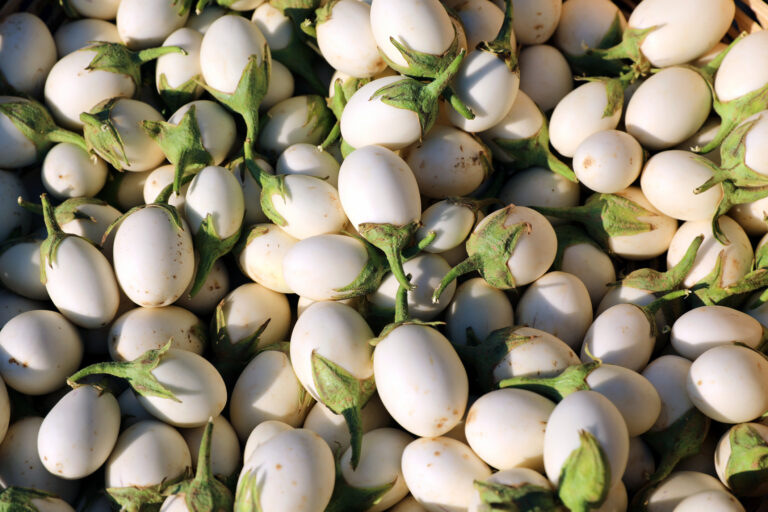The interesting history behind the unique vegetable, eggplant, and how it got its name
Eggplants, typically recognized as long, purple fruits, are often used in savory dishes. They can be prepared in various ways, such as grilling, combining with tomato sauce and cheese, or incorporating into casseroles. These versatile fruits are popular in many cuisines, yet their name seems peculiar when considering their appearance.
A recent viral photo on Reddit has shed some light on the curious name “eggplant.” While the common eggplant bears no resemblance to an egg, the image reveals a different variety that indeed looks like one. This intriguing revelation has sparked conversations and a newfound understanding of the fruit’s unique name.
Eggplants come in various shapes and colors, including white and purple varieties. White eggplants, or white aubergines, have a creamy white hue in contrast to the deep purple color that most people are familiar with.
The viral photo might lead some to believe that white eggplants are exclusively small, but they can grow longer as well. In the same vein, purple eggplants can also appear in smaller, rounder forms. The diverse range of eggplant sizes and colors highlights the versatility of this unique fruit.
Contrary to the misconception that white eggplants are always small, they can also grow longer, just like purple eggplants, which can be small and round at times.
Eggplants tend to have a slightly bitter taste and tough texture when raw, with a spongy feel. However, when cooked, they become excellent at absorbing the flavors of accompanying ingredients. They can be prepared in various ways, including grilling, roasting, sautéing, frying, or baking, making them ideal for dishes with light sauces or delicate flavors. It’s important to avoid overcooking eggplants, as they can turn overly soft and lose their appeal.

White eggplants are described by Specialty Produce as having a “fruity and mild” flavor, with cooked white eggplant being “warm” and “mellow.” Due to their thicker skin, it is advisable to peel white eggplants before cooking or eating them. In contrast, purple eggplants have thinner skin, making them easier to eat without peeling.
Although not as common as their purple counterparts, white eggplants can still be found in specialty markets or through online seed catalogs for those interested in growing them at home. Their unique flavor and appearance make them an intriguing alternative to the more well-known purple variety.
Eggplants have a long history, with their first mention dating back to 544 in a Chinese agricultural book. It is believed that European farmers in the 1700s named the fruit due to its resemblance to small white or yellow eggs, which reminded them of goose or duck eggs.
Discovering that eggplants can look like actual eggs might be a surprise for many. Share your thoughts and reactions in the comments below.





